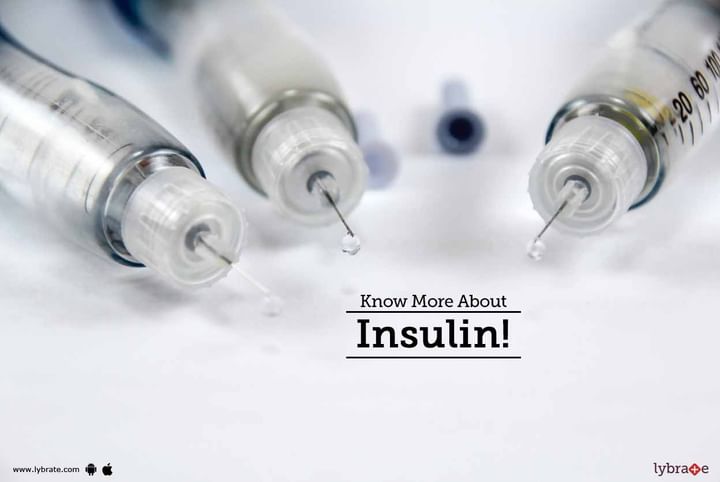Know More About Insulin!
We hear about it in relation to weight, energy levels and diabetes, but what exactly is its schtick and how does it affect our body functioning? Insulin is one of the great discoveries of modern medicine and it instantly led to lives being saved. The first [diabetes] patient was injected with insulin in 1922 – it's one of the great wonder drugs and [without it] those type 1 diabetes patients would all die.
Basically, insulin is a hormone that's produced by beta cells in the pancreas and prompts our cells to take up glucose (from ingested carbohydrates) from the bloodstream. If you don't have enough insulin, the glucose stays in your bloodstream, which reduces the energy made in your body.
Most carbohydrates contain a type of sugar known as glucose. After we finish eating, the carbohydrates break down into smaller sugar molecules called glucose inside the digestive tract. The pancreas is about 6 inches long and sits across the back of the abdomen, behind the stomach. The head of the pancreas is on the right side of the abdomen and is connected to the duodenum (the first section of the small intestine) through a small tube called the pancreatic duct. This gland produces a hormone named Insulin. When the glucose molecules are released into our bloodstream, this insulin helps the cells throughout our body to soak up these simple sugar molecules and use them for providing the body with energy. Now that our base is clear, let’s move on to the importance of insulin in our body.
Why it is important?
Insulin helps our body to absorb glucose and provides the body with all the energy to do what it does. Another really important task that insulin does is balance the glucose levels in our blood. As soon as there is extra glucose in our blood-stream, insulin gives a signal in which the excess glucose is stored in the liver for future use, i.e, in situations when blood sugar drops and the body needs an extra energy boost.
Occurrence of diabetes
In a certain turn of events, when the body refuses to use the insulin properly or in worse cases, the body fails to produce enough insulin, diabetes mellitus occurs. Diabetes can be of two kinds:
-
Type 1 - In this case, the immune system destroys all the insulin producing cells, thereby, ceasing the production of insulin. As such, insulin injections are mandatory to maintain blood sugar levels.
-
Type 2 - In this case, the body does not respond well to the instructions of insulin and the sugar level in the body is not regulated. The body in turn produces a lot of insulin in a desperate attempt to improve blood sugar levels. The patients can turn the situation over by changing their food habits and lifestyle and taking certain medications.
For people taking insulin treatment, it is good to note that insulin can be of rapid acting type, short-acting type, long-acting type and intermediate-acting type.
Other Functions of Insulin
In addition to the regulation of glucose, insulin also plays a role in other areas of the body. It may be involved in all of the following functions to:
- Modify the activity of enzymes and the resulting reactions in the body.
- Manage synthesis of lipids by uptake into fat cells, which are converted to triglycerides.
- Build muscle following sickness or injury via the transportation of amino acids to the muscle tissue, which is required to repair muscular damage and increase size and strength. It helps to regulate the uptake of amino acids, DNA replication and the synthesis of proteins.
- Manage breakdown or protein and lipids due to changes in fat cells.
- Uptake of amino acids and potassium into the cells that cannot take place in the absence of insulin.
- Enhance learning and memory of the brain functions.
- Manage excretion of sodium and fluid volume in the urine.
It is evident that insulin plays a number of essential roles in the body, including the management of sugar levels in the blood and many other areas.
In case you have a concern or query you can always consult an expert & get answers to your questions!



+1.svg)
